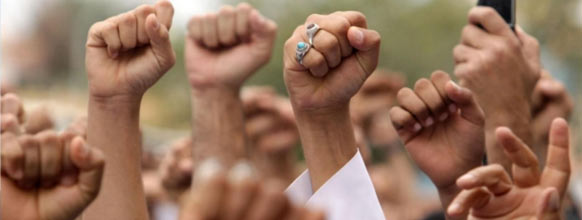As mobile operators expand their geographical horizons, they are increasingly finding themselves setting up shop in emerging markets; markets that are dynamic and undergoing major economic and social transition. However, as many have recently found out, such markets are not without their challenges and can often play home to political unrest. Providing the lines of communication to the general public during times of intense political turmoil can be a gruelling task for operators.
January 17, 2013

Emerging markets have long been attracting expansionist mobile operators looking for high growth potential. They are often dynamic and undergoing major economic and social transition. However, as some operators have recently found out, such markets are not without their difficulties and can often be marked by political unrest. Providing the lines of communication to the general public during times of intense political turmoil can be a challenging task.
The Arab Spring of 2011, saw rulers forced from power in many Middle Eastern countries, with civil uprisings and major protests breaking out across the region. The public relied on the use of social media to organise their protests and to and raise awareness in the wider world of state attempts at repression.
In early 2011, former Egyptian President Hosni Mubarak cut off internet and telephone services during the uprising in the country. Just last month (December 2012), Syria experienced a two-day internet blackout; the country’s government claimed that a terrorist attack had taken out the physical cables that connect it to the rest of the world, a claim that has been disputed by some experts. And earlier this month, Pakistan’s government instructed the nation’s operators to suspend cellular coverage in 53 cities and districts as a measure to prevent terrorist attacks over a political holiday.
In such times operators are caught in the middle, between the wishes of the regime and the communications needs of the public
“It is a difficult task to establish what measure should be taken for the greater good,” says Steven Hartley, practice leader of Ovum’s Industry, Communications & Broadband Practice. “But at the end of the day, politics is not the area a mobile operator specialises in – providing communication is.”
It’s not always doom and gloom, and out of such times of hardship, operators can play their part to help the public—and even stimulate the small business economy. One example is in Nigeria, where rebels often take down communication masts in a bid to sabotage communications. Telecoms firms in Nigeria pay guards to protect their masts in times of political unrest but, as Ovum’s Hartley explains, those guards will often receive a counter offer from rebels, bribing them to grant them access.
“So infrastructure vendors came up with a scheme to incentivise these guards to do their job by also making them airtime resellers. It therefore becomes in their interests that they protect the masts as they have a source of income depending on them staying in use. By doing this, they have made the guards ‘un-bribeable’.”
Marc Rennard is the executive VP for operations in Africa, the Middle-East and Asia at global operator Orange. As part of this role he is tasked with “crisis management” in the AMEA region.
Rennard maintains that crisis management during times of revolution “is not an everyday concern” but admits that there have been occasions when countries’ security forces have forced the operator to switch off network coverage in the country for security reasons.
“Firstly, we have to protect our 2,000 employees in this region, but also there are our corporate responsibility commitments. We, as France Telecom, are viewed as rich, by populations living in poor environments. You need to have the population with you if you want a sustainable business in any country,” he says. “So we have to teach that we are there to help them, to serve them.”
He explains that when a country plunges into crisis, an operator may only have around two hours to make some very important decisions.
“You just have to be able to protect your people in the country,” he says. He cited the operator’s most recent example of having to manage crises; in Mali where violence between rebels and authorities is continuing at the time of writing. In the first few days of violence, rebels destroyed 12 of Orange’s 1,000-odd sites, which is when Rennard made the decision to take all of his staff out of the country.
However, he then had to make another call. Should he send engineers back to safeguard the network in the country’s time of need or should he keep them out of the country, ensuring their safety?
“In the end, I decided to send just three members of staff back, because if the network goes down, the public will ask, where were you when we needed you? But if I send these three guys back, and one of them is killed, that is on my conscience and I have to live with that. It’s not an easy decision to make, but this is my job.”
About the Author(s)
You May Also Like








.png?width=300&auto=webp&quality=80&disable=upscale)


_1.jpg?width=300&auto=webp&quality=80&disable=upscale)


.png?width=800&auto=webp&quality=80&disable=upscale)